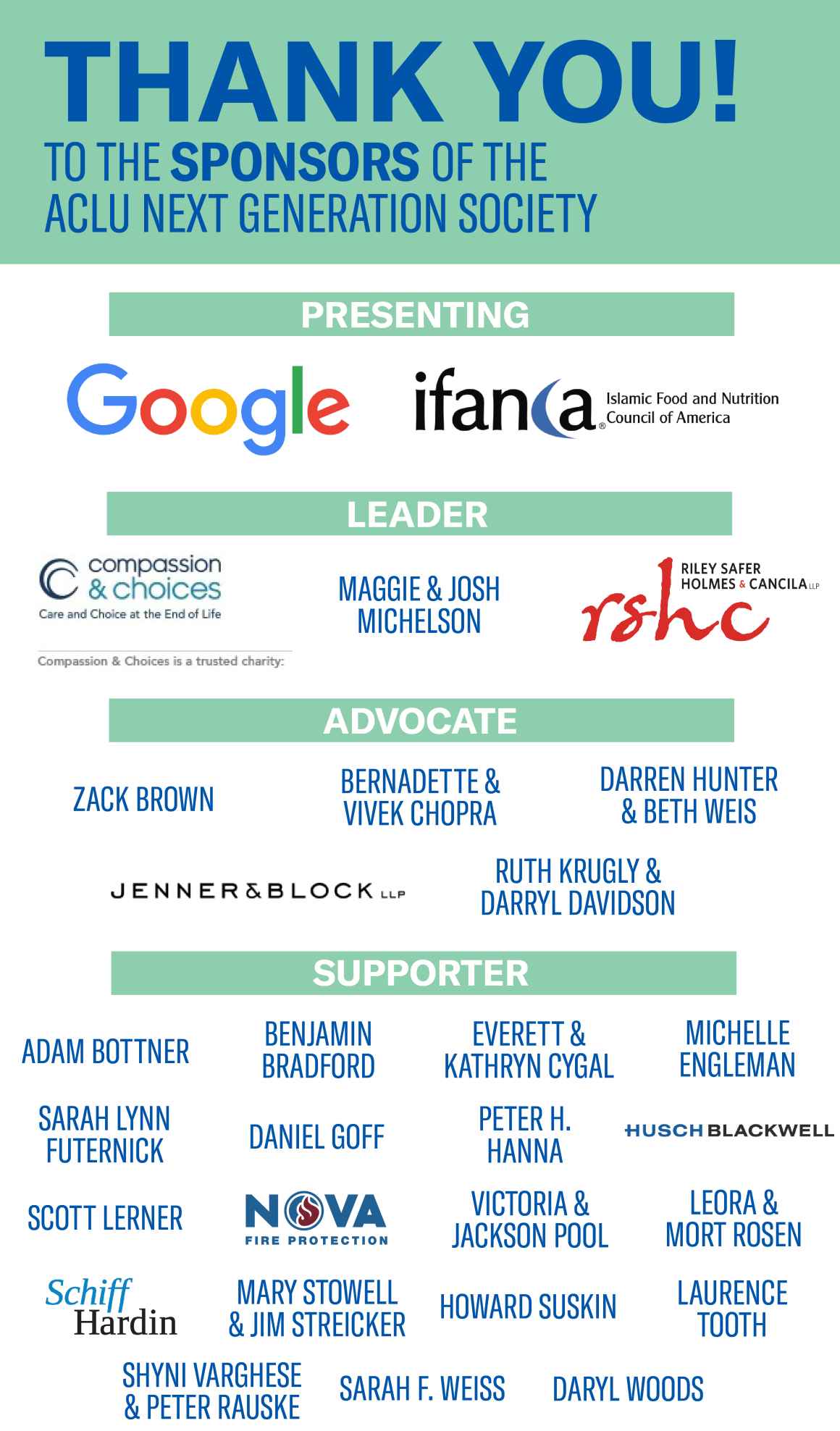The State of Illinois has not made the bulk of the changes to provision of medical care for transgender individuals in state prison ordered by a federal judge nine months ago. Instead, several Illinois Department of Corrections (IDOC) officials now admit that they have largely disregarded the court’s order and continue to deny transgender individuals the health care they need. This causes these individuals continued suffering, leading to harmful self-treatment efforts or even suicide attempts.
Because the State has failed to act, transgender prisoners now are asking the judge who ordered the changes last year to appoint an independent monitor to oversee that IDOC finally make the necessary changes.
The request comes in a filing today in the case Monroe v. Jeffreys pending in the Southern District of Illinois.
Following a two-day hearing in 2019, Judge Nancy Rosenstengel ordered IDOC to overhaul its medical care for transgender prisoners. Foremost among the changes, the Judge ordered IDOC to immediately cease making medical treatment decisions by an internal committee made up of people with no relevant experience or expertise and whose members never even met with patients.
In depositions this summer, IDOC officials who are members of this committee acknowledged that it still makes medical decisions relating to hormone therapy and surgery. IDOC officials also admitted that women who are transgender continue to be kept in male prisons and routinely strip-searched by male guards, despite the court’s order that they avoid these searches.
“Janiah, Sora, Sasha, Marilyn, and Lydia, and the class of more than one hundred transgender individuals they represent, continue to be denied the crucial medical care they need,” said John Knight, LGBTQ Project Director at the ACLU of Illinois. “In addition, the State’s refusal to recognize these women as who they are by routinely keeping them in male prisons where they are searched by men is humiliating and causes them extreme and life-threatening suffering. The situation for transgender men is similarly concerning.”
“IDOC has demonstrated that it simply cannot do this work by itself with the urgency necessary – an independent monitor is the only apparent way to protect the health and safety of our clients.”
Despite representations to the court earlier this year that IDOC was ending certain practices and making progress in complying with other changes the court ordered, the statements of IDOC officials – made under oath – belie those claims. Despite telling the court that the committee was no longer making medical decisions, Dr. Melvin Hinton, the Chief of Mental Health, testified in June that the committee continues to decide when a transgender prisoner begins hormone therapy and whether a transgender prisoner should undergo gender-affirming surgery. The Court also ordered IDOC to provide prisoners with clothing and grooming items for social transition treatment. But, again, Dr. Hinton testified that IDOC and the committee continue to deny electrolysis and other forms of gender-affirming social transition.
Another member of the committee – Ms. Tangenise Porter – acknowledged that she was still being asked by other committee members for her to weigh-in on medical treatment decisions for transgender prisoners, including decisions about housing, and without being given any guidance or standards for making such decisions.
“Nine months have passed without meaningful change for our clients in IDOC,” added Knight. “More concerning, the State continues to assert to the court that they are making changes, despite the testimony of those charged with fixing the system. We simply cannot wait for more promises and more empty words. We need an independent monitor now.”
Plaintiffs in this case are represented by the ACLU, along with lawyers from Kirkland & Ellis, King & Spalding, and Kennedy Hunt, P.C.
Souleymane Dembele is a loving husband to a lawful permanent resident of the United States and father to three U.S. citizen children. Like many people in Illinois, he has pre-existing medical conditions, including hypertension that is managed with medication. Until a few months ago, however, Mr. Dembele feared for his life. That was because he was held in Immigration and Customs Enforcement (ICE) custody at McHenry County Jail as COVID-19 spread across the country and our state like wildfire.
Mr. Dembele was in immigration detention, a system by which ICE holds people charged with immigration violations or ordered deported in facilities across the country, including three Illinois jails. Immigration detention during the COVID-19 pandemic is potentially deadly to people who, like Mr. Dembele, are older or suffer from preexisting medical conditions, including hypertension, obesity, diabetes, heart disease, and asthma. These people face a one in seven chance of death from COVID-19. Notably, Black Chicagoans, like Mr. Dembele, are more likely than white residents to be infected and die from COVID-19.
Yet, throughout Illinois, medically vulnerable people like Mr. Dembele are detained in conditions that increase their risk of contracting potentially fatal COVID-19. The disease raced through Cook County Jail, making it one of the nation’s largest nodes of coronavirus transmission. This is why we filed three lawsuits on behalf of Mr. Dembele and other medically vulnerable immigrants detained by ICE in the McHenry County Jail and the Jerome Combs Detention Center in Kankakee County, and why we advocated for the release of other medically vulnerable immigrants from the Pulaski County Jail.
Through these efforts, we secured the release from ICE custody in Illinois of four immigrants at high risk of severe harm from COVID-19, including Mr. Dembele and Joaquin Herrera-Herrera. It is critical that we did. Three immigrant detainees at the McHenry County Jail have tested positive for COVID-19 since we secured the release of Mr. Dembele and another immigrant—despite ICE’s claim that the jail was a model for COVID-19 prevention.
Too many immigrants remain detained in Illinois jail conditions that foster the entry and rapid spread of the coronavirus. As one immigrant detainee in the Jerome Combs Detention Center explained, “I am terrified that the jail staff will bring in the COVID-19 virus to the detention center. . . They are out and about. They go home. Then they come back here. They could bring the virus into the jail any day now and we are left powerless.”
Dr. Homer Venters, an expert in internal medicine and correctional response to infectious disease, found the jail’s screening and testing procedures fail to reflect current CDC guidelines and are inadequate to ensure that coronavirus does not enter the jail.
Another immigrant detainee in the same jail explains, “It is very hard to keep distance from other detainees, particularly my cellmate, and we are all touching the same surfaces over and over again.” Dr. Venters found that video footage and statements from medical staff at the jail at showed a lack of commitment to ensuring social distancing in predictable locations, including medication and meal lines.
Troublingly, Dr. Venters also found that the Jerome Combs Detention Center lacks sufficient medical staff on duty, especially at night, and has “significantly deviated from the current professional standards for protecting medically vulnerable people in detention.” These failures place immigrant detainees at-risk of serious illness, and death from COVID-19 in particular danger. Shockingly, one medical leader at the jail also incorrectly testified that the risk of asymptomatic transmission of COVID-19 is “very, very, very low” — in stark contrast to the CDC’s recognition that coronavirus transmission by people with presymptomatic or asymptomatic infection contributes to the spread of COVID-19.
Since April 2020, federal judges have ordered the release of several medically vulnerable immigrants from Jerome Combs Detention Center, including Mr. Herrera-Herrera, due to the dangerous conditions there. But a more recent court opinion denied release to five medically vulnerable immigrants from that jail despite evidence — including Dr. Venters’ findings — that these troubling conditions persist. The court relied heavily on the fact that the number of ICE detainees in the jail had been reduced by around 86% since the onset of the COVID-19 pandemic — a reduction that is in part due to sustained litigation against the facility by medically vulnerable immigrants seeking release.
But let’s be clear: inadequate jail conditions continue to ensure that COVID-19 poses a serious threat to the health and lives of immigrant detainees and staff in Illinois jails, as well as to people in surrounding communities.
Even as ICE temporarily stopped sending new detainees to the Jerome Combs Detention Center, detainees in the McHenry County Jail reported to us that ICE was simply sending more immigrants there instead. It should be no surprise that now the McHenry County Jail has three confirmed cases of COVID-19 amongst detained immigrants. The Pulaski County Jail experienced a massive outbreak with 51 detainees testing positive for the disease. And as of today, ICE data shows that 4,192 immigrant detainees nationwide have tested positive for COVID-19.
ICE facilities are no place for medically vulnerable immigrants. As documented in a report by the ACLU, Human Rights Watch, and National Immigrant Justice Center earlier this year, the severe risk of harm to immigrants in ICE detention from COVID-19 is emblematic of everything wrong with the immigration detention: a system vastly expanded under the Trump administration with no clear way out for detained people, sordid conditions, and inadequate medical care. Nevertheless, ICE has appealed nearly every one of the federal court decisions ordering the release of medical vulnerable immigrants from ICE custody in Kankakee, including the order releasing Mr. Herrera-Herrera.
In the weeks since he was released, Mr. Dembele has remained COVID-19 free. He was able to safely celebrate Ramadan, Eid-al-Fitr, and Eid-al-Adha with his family. There is no basis for concern that he will not appear in immigration court or even for his deportation, if that is scheduled. Yet, before we filed suit seeking Mr. Dembele’s release due to dangerous conditions in the McHenry County Jail, ICE had sought to keep him detained pending the resolution of his immigration case, despite readily available alternatives to detention.
Mr. Dembele is proof that releasing medically vulnerable people from immigration detention is not only safe, but the right and decent thing to do to protect the health and lives of detainees, jail staff, and their families, as well as their surrounding communities. We will not stop fighting for the rights of immigrants in detention who face these terrifying conditions.
Date
Friday, August 7, 2020 - 12:15pmShow featured image
Hide banner image
Tweet Text
Related issues
Show related content
Menu parent dynamic listing
Show PDF in viewer on page
Style
WATCH A RECORDING OF THE FUNDRAISER
Please join the ACLU Next Generation Society on Thursday, October 1 for our 5th annual Fall Fundraiser! The event will take place from 7:00 - 8:00 PM, with trivia following from 8:00 - 9:00 PM. Due to COVID-19, the fundraiser will be a virtual event.
The Next Generation Society of the ACLU is a vibrant and diverse membership group for activists, professionals, artists, emerging leaders, and engaged citizens committed to supporting the essential work of the ACLU and safeguarding civil liberties for future generations.
This is an important night to celebrate the ACLU’s essential mission: standing up for the rights of all people. As the ACLU celebrates its 100th Anniversary – and the Next Generation Society celebrates its 5th Anniversary – we invite you to join us for an evening that will explore the role that each of us must play in moving change forward in our country.
Buy your tickets today and join us! There will be trivia at the after party, so invite your friends to join us as well!
The Next Generation Society strives to create inclusive, accessible events that enable all individuals to fully engage with its programming. If you are interested in attending but the cost of the ticket is a barrier, please reach out to Liesl Pereira (lpereira@aclu-il.org) for more information. The event will have open captioning; if you would like to request other reasonable accommodations to better participate in this event, please reach out to Liesl.

Event Date
Thursday, October 1, 2020 - 7:00pm toFriday, October 2, 2020 - 6:45pm
Featured image
